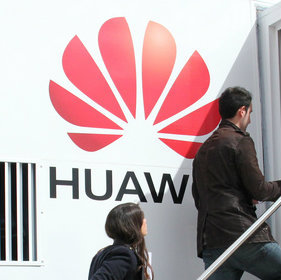Huawei's CEO Denies Back Door Theory – Reports
Press reports from Shenzen say that Huawei CEO Ren Zhengfei has denied that his company has standing orders to install 'back doors' into its gear to allow the Chinese government to spy on Huawei customers.

Huawei's founder and CEO Ren Zhengfei told reporters today that Huawei is still employee-owned and would resist requests by the Chinese government to spy on its customers, according to a report in The Wall Street Journal.
Speaking at the company's campus in Shenzen, Zhengfei said that Huawei Technologies Co. Ltd wasn't required to "install mandatory back doors" on its gear -- a charge often leveled at the vendor by competitors and Western politicians worried about the level of control that the Chinese government has on Huawei -- and the company's potential for using its gear to spy on telecom service providers and their customers.
"I personally would never harm the interest of my customers and me and my company would not answer to such requests," Zhengfei is quoted as saying, according to The Journal's report.
The Journal also noted that Zhengfei, speaking through an interpreter, said he missed his daughter -- Huawei's CFO Meng Wanzhou -- and was confident that justice would prevail. It marked the first time the company's founder has spoken publicly about Meng's arrest in Canada, where she spent nearly two weeks in jail before posting bail. She faces charges related to an alleged US sanctions breech when Huawei sold telecom equipment to Iran. (See Huawei CFO Posts Bail in Canada.)
Meanwhile, the US government continues its needling of Huawei, doing all it can to slow the telecom equipment company's worldwide dominance.
The US Commerce Department has opted not to renew export licenses for Futurewei Technologies, Huawei's R&D facility in Silicon Valley, according to a January 10 report in The Wall Street Journal.
Most of what Futurewei exports to Huawei doesn't require an export license. But in this case, the license covers "the export of telecommunications technology and software, including high-speed data transfer technology," The Journal reported, citing government documents. "The technology had an operating budget of more than $16 million and involved more than 40 full-time-equivalent personnel," The Journal reported.
The latest revelation isn't a business killer for Huawei by any means, but a reminder that the US government is taking every available opportunity to stall the company's reach and influence in US.
Light Reading was unable to get Huawei or its Futurewei subsidiary to return phone calls or emails regarding The Journal's story.
More on Huawei's recent troubles:
— Phil Harvey, US News Editor, Light Reading
Read more about:
AsiaAbout the Author(s)
You May Also Like


.jpg?width=300&auto=webp&quality=80&disable=upscale)









